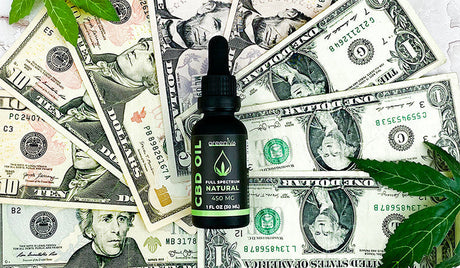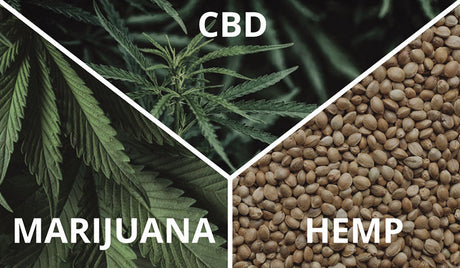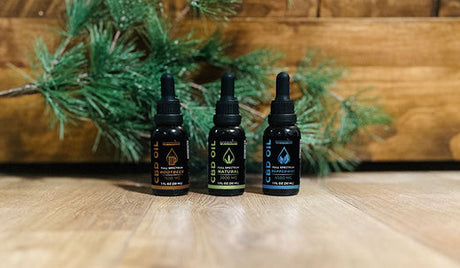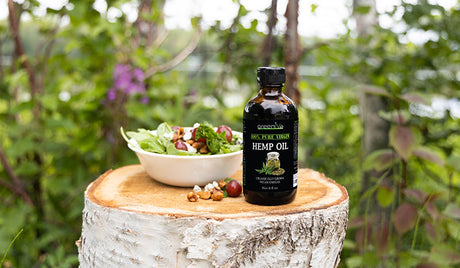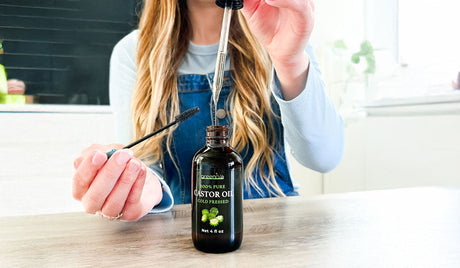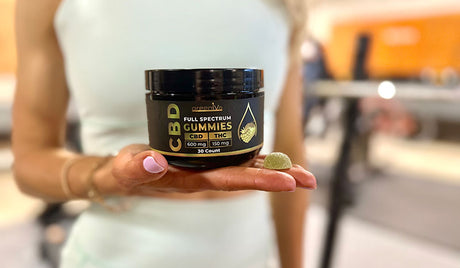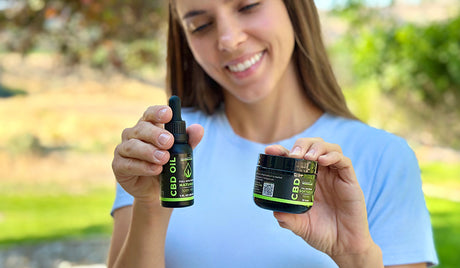CBD has become a buzzword in the wellness industry, captivating the attention of many seeking natural remedies. As its popularity soars, questions about CBD are abundant.
These common queries deserve accurate and accessible answers. In this blog, we aim to demystify CBD by addressing frequently asked questions surrounding this natural compound. Whether you're a CBD enthusiast or simply curious about its potential benefits, we've got you covered with comprehensive and reliable information.
Throughout this blog, we will address a wide range of questions that often arise when discussing CBD. From its origins and legal status to its potential benefits and safety, we'll dive deep into the world of CBD to equip you with the knowledge you need to make informed decisions.
So, if you're ready to uncover the truth about CBD and explore the answers to those burning questions, let's embark on this enlightening journey together.
What Is CBD?
Cannabidiol, or CBD, is a naturally occurring compound found in the cannabis sativa plant. CBD is one of over a hundred cannabinoids identified in cannabis, along with THC (tetrahydrocannabinol), which is known for its psychoactive effects.
Unlike Tetrahydrocannabinol (THC), CBD does not produce a euphoric "high" sensation at all. Pure CBD has gained significant attention for its potential therapeutic properties and is commonly extracted from hemp, a variety of cannabis with low THC levels.
It interacts with the body's endocannabinoid system, a complex network of receptors and neurotransmitters involved in regulating various physiological functions like mood, sleep, and discomfort.
CBD is available in different forms, including oils, capsules, edibles, topicals, and more, allowing individuals to choose a method of consumption that suits their preferences and desired outcomes.
How Does CBD Work?
CBD interacts directly with the Endocannabinoid System. The Endocannabinoid System is in charge of keeping your body in homeostasis or balance. This system works closely with other processes within the body to determine areas that may need some extra help to keep balance in the body.

When you take CBD, the Endocannabinoid System immediately distributes it throughout the body. CBD then stimulates the CB1 and CB2 receptors within this system. It works with our body's own natural endocannabinoids to help maintain balance.
These endocannabinoids work to find the problem within the body and try to improve the problem with the help of CBD. For a more in-depth explanation you can read our blog What is the Endocannabinoid System and CBD?
Is CBD Safe To Use?
Most individuals generally consider CBD safe to use. Numerous studies and clinical trials have demonstrated its low toxicity and favorable safety profile. Large amounts of CBD are well-tolerated, and most of the reported side effects are mild and temporary.
You should purchase CBD products from reputable companies. These companies should adhere to quality standards and use organic hemp. Additionally, they should provide lab test results from third-party sources.
It is always recommended to start with a low dosage and gradually increase as needed while monitoring your body. Overall, individuals consider CBD a safe option for seeking natural remedies for various conditions. We recommend using CBD responsibly and under professional guidance.
What Are The Potential Benefits of CBD?
Many believe that CBD offers a range of potential benefits that have drawn attention in recent years. While researchers need more studies to fully understand its effects, preliminary studies have shown several potential benefits of CBD.
CBD has been linked to mental health benefits as it has been found to potentially help with mood-related symptoms. Secondly, CBD is known to potentially help with discomfort and joint soreness. Last but not least, CBD has shown promise in improving sleep quality and duration.
It's important to note that individual responses to CBD may vary, and it's advisable to consult with a healthcare professional to assess its potential benefits and determine if CBD suits your specific needs.
How Do I Choose The Right CBD Product?
Choosing the right CBD product can be crucial to ensure you experience the desired effects and obtain a high-quality product. Here are some key considerations to guide you in selecting the right CBD product.
First, determine your preferred method of consumption. You can find CBD in various forms, such as CBD oils, CBD pills, CBD gummies, CBD edibles, CBD topicals, and more. Consider which method aligns with your lifestyle and needs.
Second, pay attention to the CBD concentration and dosage. Start with a lower dosage and gradually increase as needed to find your optimal dose. For following dosage instructions, visit our dosage calculator.
Third, prioritize quality, look for CBD products sourced from organic hemp, free of pesticides and contaminants. Ensure the product has been third-party tested. With the test results readily available to verify its potency and purity.
Lastly, read customer reviews and consider the reputation of the brand. Look for well-established companies with positive feedback and transparent practices. Consulting with a healthcare professional can also provide guidance in choosing the right CBD product.
Can CBD Get Me High?
No, CBD cannot get you high, unless its well-known counterpart, THC, is also in the CBD product. THC is the psychoactive compound in cannabis that produces the mind-altering effects commonly associated with marijuana use. THC also has potent benefits, but the effectiveness of THC varies on the dosage.
CBD, on the other hand, does not possess the same psychoactive properties. It interacts with the body's endocannabinoid system, causing the entourage effect. It doesn't cause a high or alter one's state of mind.
CBD and THC products derived from the hemp plant are legal if they contain only trace amounts of THC, usually below 0.3% THC concentration. This is not enough to produce any intoxicating effects. Therefore, individuals can enjoy the potential therapeutic benefits of CBD without experiencing the euphoria associated with THC.
How Long Does CBD Take To Work?
The onset time of CBD's effects vary depending on several factors, including the method of consumption, dosage, and individual body chemistry. Generally, when CBD is taken sublingually (under the tongue) in the form of tinctures or oils. It tends to have a faster onset, typically within 15-30 minutes.
This is because the sublingual method allows the CBD to bypass the digestive system and enter the bloodstream directly. On the other hand, when CBD is ingested through capsules, edibles, or beverages, it needs to pass through the digestive system, which can take longer, typically around 30 minutes to 2 hours, for effects to be felt.
Topical application of CBD, such as creams or lotions, primarily targets localized areas and may have a quicker effect. Individual responses to CBD can vary. Some may feel effects quickly, while others may need to use it consistently for a while to see benefits.
Patience and consistency are key when using CBD, and it's recommended to start with a lower dose and gradually increase as needed while monitoring your body's response.
Can I Take CBD With Other Medications?
To use CBD with your medications, make sure you know how they might interact. Understanding potential interactions before adding CBD to your routine is important.
CBD has the potential to interact with certain medications because it can affect how the body processes drugs through the liver's enzyme system. This system is responsible for metabolizing many medications. CBD may inhibit or enhance the activity of these enzymes. This can impact the mixture of other drugs in your system.
Therefore, it is crucial to consult with a healthcare professional before combining CBD with other medications to ensure there are no adverse interactions or unexpected effects.
Your healthcare provider can provide personalized guidance and help you make informed decisions based on your specific medical condition.
Is CBD Legal?
The legal status of CBD varies depending on the country and state laws. In many countries, CBD derived from hemp with a low THC content (usually below 0.3% THC) is legal, thanks to the passage of laws or regulations that distinguish hemp from marijuana. Hemp-derived CBD products are widely available in various forms, including oils, capsules, topicals, and more.
However, it's important to note that regulations can differ between countries and even within different states or regions. In some places, CBD products may be subject to specific restrictions or require a prescription.
On the other hand, CBD derived from marijuana, which typically contains higher levels of THC, is subject to stricter regulations and may only be legal for medical use or in specific circumstances.
Researching and understanding the specific laws and regulations governing CBD in your jurisdiction before purchasing or using CBD products to ensure compliance with local regulations is essential.
Sum It Up
In conclusion, exploring the frequently asked questions about CBD has shed light on this popular natural compound and provided valuable insights.
As the world of CBD continues to evolve, further research is needed to fully understand its potential and maximize its benefits. By staying informed, consulting professionals, and making educated decisions, you can navigate the realm of CBD confidently and discover whether it aligns with your wellness goals.
We hope this blog has provided clarity and answered many of your burning questions about CBD. Remember, it's always advisable to seek personalized advice from healthcare professionals and adhere to local regulations regarding CBD usage. Empowered with knowledge, you can embark on your CBD journey with confidence and make informed choices for your overall well-being.
GreenIVe Cannabis Products





